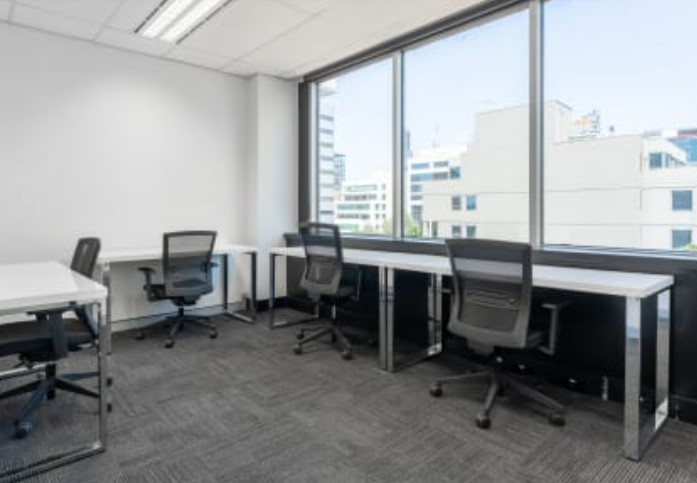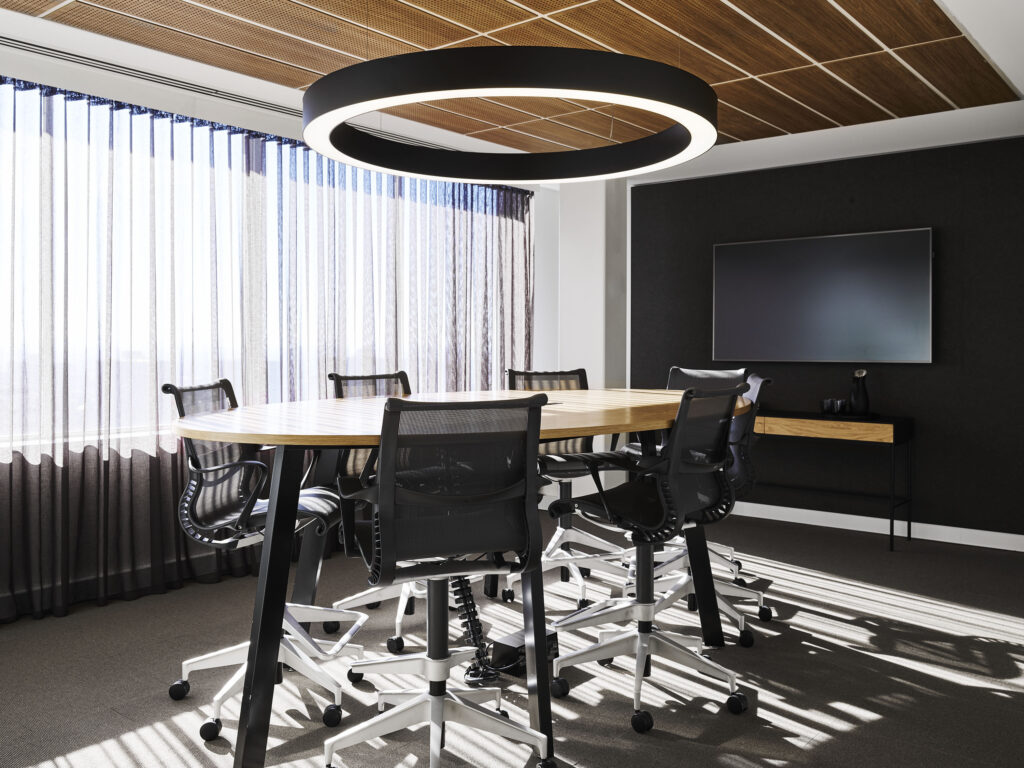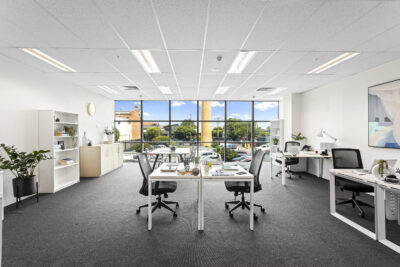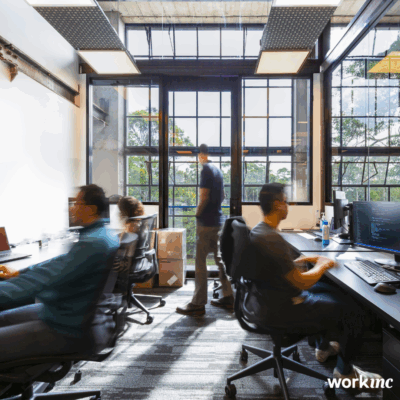The rise of coworking spaces has completely transformed the way startups and small to medium-sized enterprises (SMEs) operate. Moving beyond traditional office spaces, these shared workspaces offer an innovative solution for modern businesses looking to scale, collaborate, and remain cost-effective. For any growing company, finding the perfect coworking space for startups can unlock opportunities for success while fostering productivity, flexibility, and community-driven growth.
The Growing Need for Coworking Spaces in Today’s Business Landscape
For startups and SMEs, achieving the right balance between scalability and cost management is a constant challenge. Traditional office spaces, with their high upfront costs, rigid long-term leases, and lack of adaptability, often prove impractical for emerging businesses navigating rapid growth.
This is where coworking spaces step in as a modern solution, offering:
- Flexible workspaces that adapt to businesses at every stage of growth.
- Essential amenities like high-speed internet, meeting rooms, and printing services without significant investments.
- A supportive community that encourages collaboration, innovation, and networking opportunities.
Recent trends highlight how the Australian CBD office market has seen increased vacancy rates due to new office stock and backfill spaces entering the market, despite positive demand in cities like Sydney and Perth. In this evolving office landscape, coworking spaces provide startups with a cost-effective, scalable alternative to traditional office leases.
By choosing shared office spaces or private offices within coworking environments, startups can operate efficiently while benefiting from a dynamic and vibrant community that promotes creativity and growth.
Cost Comparison: Coworking Spaces vs. Traditional Office Rentals
Coworking spaces provide a variety of workspace options that cater to startups and SMEs, including hot desks, dedicated desks, and private offices. This flexibility, combined with cost-effectiveness, makes them a more attractive alternative to traditional office rentals. Let’s break down the costs to showcase the broader financial advantages of coworking:
- Leasing a traditional office in Australia’s major cities can be a significant financial commitment. For instance, in Sydney’s Central Business District (CBD), the average office space per employee is approximately 12-14 square meters. With prime office space rates, a solo business owner might expect to pay around $162,000 per annum. In Melbourne, the average office space per employee is about 14 square meters. This equates to approximately $9,170 per month for one employee, considering the prime location rates.
- Coworking Spaces – Coworking spaces have emerged as a transformative alternative to traditional office setups, offering startups and SMEs a professional workspace at a fraction of the cost. They are designed to cater to businesses of all sizes by providing flexible membership options, shared resources, and access to essential amenities, without the burden of long-term leases or high upfront investments.
The cost of coworking spaces varies depending on the location, type of desk, and the amenities provided. For example, as of the second quarter of 2023, the average monthly prices for a single desk in major Australian cities are:- Sydney: Approximately AUD 980 per month per desk as per second quarter of 2023
- Melbourne: Approximately AUD 545 per month
These costs reflect an all-inclusive pricing model, which typically covers high-speed internet, access to meeting rooms, printing services, communal areas, and more.
Why These Costs are Significant for Startups and SMEs
- Elimination of Upfront Investments
Unlike traditional office rentals, coworking spaces don’t require startups to invest in furniture, equipment, or renovations. Everything from ergonomic chairs to fully equipped meeting rooms is ready for use. For a startup operating in Sydney, where renting a small private office can cost AUD 5,000–7,000 monthly, coworking spaces offer substantial savings. - Scalability Without Financial Risk
Startups often experience unpredictable growth, making it challenging to commit to fixed office spaces. Coworking spaces allow businesses to scale up or downsize effortlessly. For instance, a team can start with hot desks for AUD 545–980 per month and transition to private offices as they grow, avoiding penalties or wasted space. - Flexible Memberships for Budget Control
Monthly memberships in coworking spaces provide a predictable expense for startups, with no hidden costs for utilities, maintenance, or cleaning. For example, a startup in Melbourne could budget approximately AUD 695 per person for coworking, compared to the significantly higher costs of leasing a private office, which often includes unpredictable overheads. - Strategic Location Benefits Without Premium Costs
Coworking spaces are often located in central business districts (CBDs) or strategic urban locations. This gives startups access to prime business hubs without the premium lease costs associated with renting an office in these areas. - Shared Resources and Networking Opportunities
Beyond cost savings, coworking spaces offer value in the form of shared resources and networking. Startups gain access to professional-grade equipment, breakout areas, and event spaces—services that would be expensive to arrange independently. Additionally, the vibrant community fosters collaboration, which can lead to partnerships, mentorship, and growth opportunities.
How Coworking Spaces Enhance Productivity
For startups and small business owners, creating a productive work environment is critical to their success. Coworking spaces are designed to address this need through thoughtful layouts and functional designs.
Whether it’s dedicated desks for individuals, fully equipped meeting rooms for client discussions, or private phone booths for confidential calls, these spaces offer solutions that cater to diverse professional needs.
- Ample natural light and ergonomic furniture ensure comfort and enhance focus.
- Breakout spaces encourage short breaks, which improve productivity and creativity.
- High-speed Wi-Fi and printing services minimise technical disruptions, enabling teams to work seamlessly.
By offering an environment that combines both structure and flexibility, coworking spaces provide the ideal setting for professionals to work independently while thriving in a collaborative setting.
Flexibility: A Key Benefit for Startups

Image source: https://flexfind.com.au/listing/91-phillip-street-parramatta/
One of the standout features of coworking spaces for startups is their ability to adapt to changing business needs. Unlike traditional office spaces, coworking spaces offer flexible membership options that allow startups to scale their workspace as their team grows.
For instance, a growing team might start with a smaller office and later transition into larger private offices. This flexibility removes the pressure of long-term leases, enabling businesses to manage their resources effectively.
Moreover, coworking spaces are often situated in strategic locations such as CBDs, offering convenient access to public transport and other amenities. This accessibility enhances client meetings and day-to-day operations.
Cost-Efficiency for Startups and SMEs

Image source: https://flexfind.com.au/listing/1-nicholson-street-east-melbourne/
Coworking spaces also provide a more cost-effective alternative compared to traditional office setups. For example, according to a detailed analysis by sharpsheets, running a coworking space of 278 square meters with 100 desks costs around $32,000 – $36,500 per month, including expenses like rent, salaries, utilities, and cleaning services.
For startups, these costs are often shared among multiple members, making the financial burden significantly lower than leasing and managing a private office. Additionally, coworking spaces typically generate their revenue from membership fees, which account for about 80% of their income, ensuring operational sustainability without compromising affordability for members.
This cost-sharing model is ideal for startups, as it allows them to access premium office amenities—such as meeting rooms, high-speed internet, and networking events—without incurring the upfront costs of setting up and maintaining these resources themselves.
Networking Opportunities and Collaboration
A thriving vibrant community is the backbone of any coworking space. For tech startups and SMEs, the presence of a diverse group of professionals creates unparalleled networking opportunities and collaboration potential.
Working alongside individuals from various industries opens doors to partnerships, mentorship programs, and even new clients. Many coworking spaces host regular networking events and social events that allow members to connect, share ideas, and foster valuable relationships.
This diverse community also serves as a sounding board for startups, offering insights, feedback, and support as they navigate the challenges of business growth.
Access to Professional Amenities
Another major advantage of coworking spaces is the access to professional amenities that startups often can’t afford in a traditional office setting.
Key amenities include:
- Fully equipped meeting spaces and event spaces for presentations or team discussions.
- Communal kitchen facilities stocked for convenience.
- Tech-enabled workspace solutions with high-speed Wi-Fi.
Coworking spaces often incorporate ergonomic workstations and well-designed communal areas, fostering comfort, productivity, and collaboration. For startups, this translates into a cost-effective solution without compromising on quality.
Fostering Work-Life Balance
For startups and SMEs, achieving a healthy work-life balance can be challenging when working from home or in isolated spaces. Coworking spaces provide a professional, yet relaxed environment where teams can focus on work without blurring the boundaries between professional and personal life.
Many top coworking spaces also offer other amenities such as on-site fitness studios, lounges, and recreational areas, ensuring professionals can unwind and recharge when needed.
With 24/7 access in many spaces, startups can operate on their own schedules while still enjoying the benefits of a structured workspace.
Cost-Effective Workspace Solutions for Startups
Compared to traditional office leases, coworking spaces present a far more cost-effective solution for startups. Traditional offices require significant investments in furniture, equipment, and maintenance, all of which can be burdensome for a new business.
Co-working spaces simplify this by offering:
- Inclusive pricing with no hidden costs.
- Flexible contracts tailored to a startup’s needs.
- Access to all the essential amenities such as Wi-Fi, printing services, and office equipment.
For budget-conscious businesses, coworking spaces allow teams to remain professional and productive without breaking the bank.
Conclusion: Why Startups Thrive in Coworking Spaces
A coworking space for startups offers far more than just a desk and Wi-Fi. In major Australian cities like Sydney, Melbourne, Brisbane, Perth & Adelaide, the high costs of leasing a traditional office space can be a significant hurdle for startups and SMEs. Coworking spaces provide a modern breakthrough, offering the perfect blend of flexibility, community, and functionality that startups need to scale and grow efficiently.
With features like dedicated desks, premium meeting rooms, and collaborative environments, coworking spaces eliminate the constraints of traditional offices while delivering resources tailored to modern business needs. From the comfort of private offices to the buzz of shared office environments, these spaces foster innovation and meaningful connections that empower startups to thrive.



